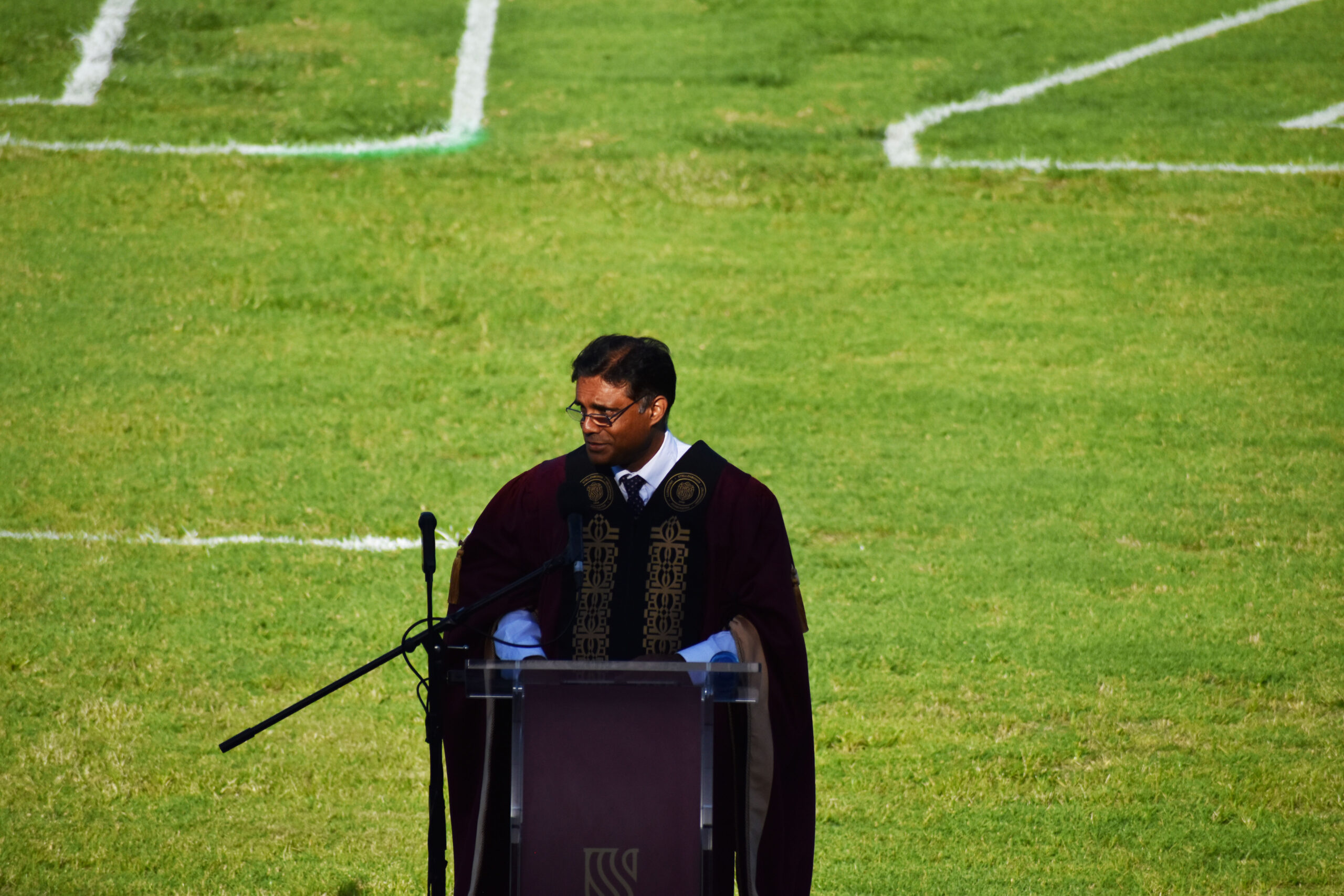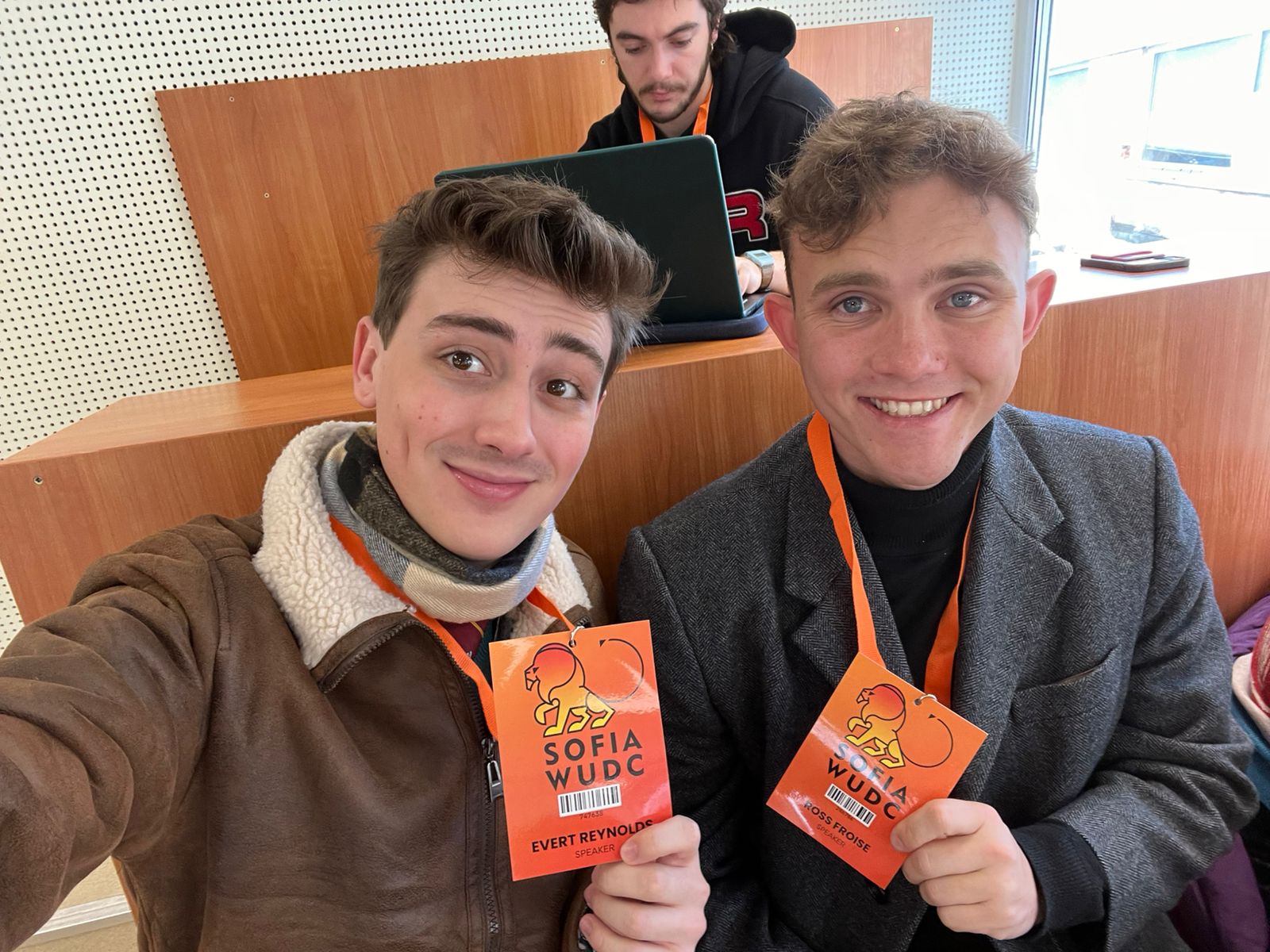By Karla van der Merwe
Students arrived to The Neelsie on 17 March to find it shutdown by protests against registration blocks due to historical debt. Protesting students said that they would stay in the Neelsie until they were addressed by Prof Stan du Plessis and their demands to be registered were met.
According to a statement released by the SRC on 18 March, their demands entailed “that the block be lifted for all unregistered students” and that a communique be sent out announcing this.
A student at the protest mentioned to Die Matie that the group had decided to stay in the Neelsie overnight if that meant being taken seriously.
“This Neelsie is not going to operate until every student on this campus is registered,” the student continued, “and we will not surrender, they will not break our spirits.”
According to the university’s Facebook page, this group of about 20 students was being monitored by Campus Security and the South African Police Service (SAPS) while staff members and student leaders engaged with them regarding their demands. Later that evening, the university issued a notice informing the protesting students to vacate the building in 10 minutes, indicating that the group was interfering with operations and trespassing. The students proceeded to stay outside the Neelsie, where they were issued a similar letter at 11:00 the following morning stating:
“Your presence in The Neelsie, its entrances and surrounds (the “premises”) is in contrary to the purpose the premises are intended for…You are hereby instructed to vacate and leave the premises in an orderly manner within 10 minutes of the delivery of this letter.”
The students continued to block doors throughout the day, but allowed access to the Neelsie.
One poster from the students read: “We are not here to disturb your right to education; we just want to register!”
The protests began shortly after Stellenbosch University (SU) Student Representative Council (SRC) held a special meeting on Tuesday 16 March on the Rooiplein to address registration problems that students had due to historical debt. However, a group of students, now identified by SU SRC as the “Minority Poor Black Unregistered Students”, were dissatisfied with the lack of clear answers at the meeting and thus began protesting.
The aforementioned meeting was held in response to an announcement from the South African Union of Students (SAUS) which called for a nationwide shutdown of universities to protest the blocking of student registration due to historical debt. This meeting was held to discuss how SU would react to the call to shut down to protest, among other things, in favour of scrapping historical debt.
Xola Njengele, chairperson of the SU SRC, explained at the meeting that the 543 students who still had not registered due to carried over debts would be given access to SUNLearn so that no students would be left behind with academics. Njengele further explained that registration would be extended to 26 March. Students who are receiving help from the #Action4Inclusion initiative would have their debts paid off and thus be able to continue to keep up with work as they waited to be helped by the initiative.
The announcement of access to SUNLearn resulted in mixed reactions from attendees of the meeting. Individuals asked for clarification as to whether this would mean that they would be registered, which it did not, resulting in many questions aimed towards Njengele.
An individual asked Njengele how the registrar would know which modules to give them access to if they had not registered for the necessary modules. To these questions Njengele had no definitive answer, but pledged to go sort things out with management.
When asked why SU was not participating in the SAUS Shutdown, Njengele indicated that it was difficult to organise protests for issues in Stellenbosch as they often receive no potential numbers of participants.
“There will not be a shutdown at Stellenbosch,” Njengele then announced.
In later communications with the SRC, Eduard Zehrt, the secretary-general of the SRC, explained that he and Njengele attended a meeting with SAUS on 3 March wherein historical student debt blocking registration, among other demands, were discussed.
Zehrt explained, “The responses from the executives indicated that most of the demands could not be met, or at least not fully.”
“Unfortunately, the meeting was not as productive as it could have been, as the executives’ responses were largely rejected rather than engaged on,” Zehrt continued.
Upon the decision by the SRCs of various South African universities to have a national shutdown, Njengele and Zehrt indicated to the SAUS chairperson that Stellenbosch would likely not shut down.
“Firstly, our campus buildings are scattered across town, and shutting down the university would necessitate shutting down the whole town. Secondly, the student sentiment at Stellenbosch is usually not conducive to such large mobilisations,” Zehrt said.
SU SRC, still committed to representing all students on campus, instead aimed to work with the university to lift blocks on registration and get unregistered students access to food, internet and academic resources, which resulted in the idea to give all students access to SUNLearn. They also aimed to help students pay off debts where they could.
SU SRC has various financial assistance initiatives which they use to gather funds for these matters, including RegisterAll, #Action4Inclusion, and Matie2Matie. In the meantime, hashtags like #SUREGISTERALL, #Stellies_Asinamali and #freeeducation and calls for solidarity have circulated on campus and social media.
The aforementioned statement from SU SRC called for calm amongst students while they work to meet the demands. The statement also clarified various concerns from the initial meeting with students, such as how they will get access to the correct modules.
“The Minority Poor Black Unregistered Students” , who later referred to themselves as “The 20 students who occupied the Neelsie” also released an open letter to the public on 21 March explaining that they chose to occupy the Neelsie. They also explained their side of the protests in the document and mentioned that they are satisfied with the direction the University has taken in granting them the SU Registration 2021 Bursary.
“We would like to thank everyone who supported us. Whether it was through the provisions of food or by sharing our struggles on social media, thus raising awareness,” the statement concluded.



